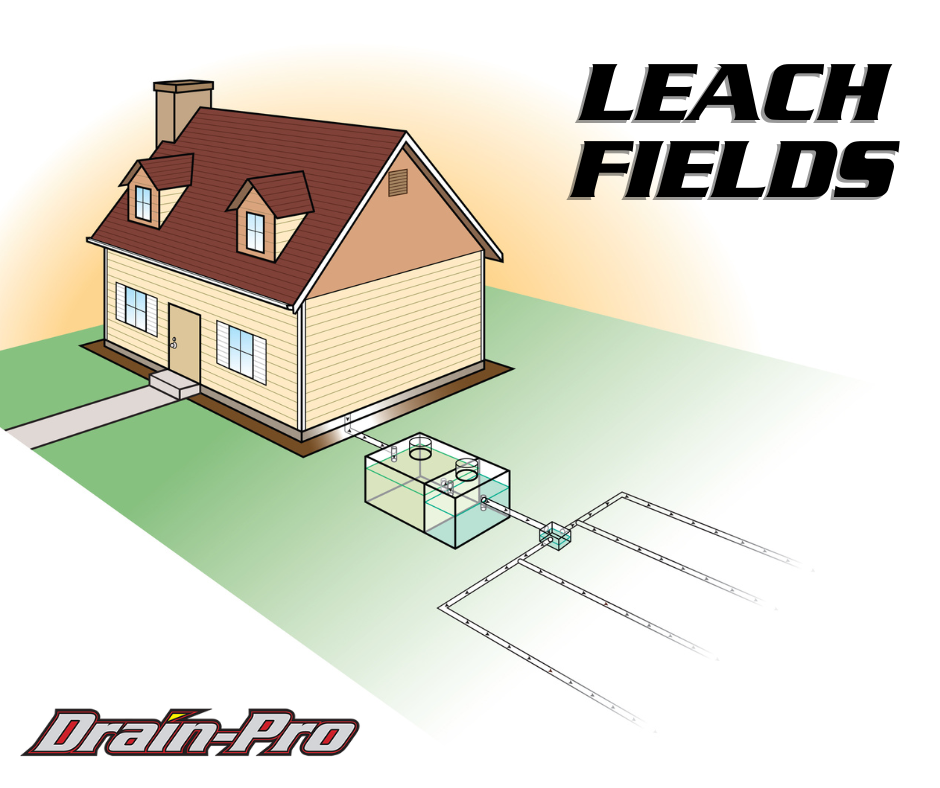If you own a septic system, the leach field (also called a drain field) is one of its most critical components. It plays a major role in treating wastewater after it leaves your septic tank. Proper maintenance and understanding of how your leach field works can prevent costly repairs and system failures.
What Is a Leach Field?
A leach field is an underground network of perforated pipes laid in gravel-filled trenches. Its primary job is to disperse and filter wastewater that exits the septic tank. As the liquid seeps through the soil, natural filtration removes contaminants before the water reenters the groundwater system.
How Does a Leach Field Work?
- Separation – Solid waste settles in the septic tank while liquid waste (effluent) flows out to the leach field.
- Distribution – Effluent is evenly distributed through perforated pipes.
- Filtration – The surrounding gravel and soil act as a natural filter, removing bacteria and nutrients.
- Absorption – The filtered water gradually returns to the groundwater system.
Signs of a Failing Leach Field
A well-maintained leach field can last for decades, but issues can arise due to age, overuse, or neglect. Here are some red flags that indicate trouble:
- Slow Drains & Backups – If sinks, toilets, and tubs are draining slowly, your leach field may be saturated.
- Soggy or Smelly Yard – Wet, spongy ground or foul odors near the drain field suggest wastewater isn’t properly filtering.
- Lush Green Grass – If one section of your yard is significantly greener than the rest, excess wastewater could be fertilizing it.
- Standing Water – Pools of water around the leach field indicate the soil isn’t absorbing wastewater efficiently.
How to Maintain Your Leach Field
- Watch What You Flush – Avoid flushing grease, chemicals, wipes, and non-biodegradable materials that can clog your system.
- Limit Water Usage – Excessive water flow can overwhelm the system. Spread out laundry loads and fix leaks promptly.
- Pump Your Septic Tank Regularly – A full tank can lead to solids clogging the leach field. Routine pumping prevents buildup.
- Protect the Drain Field – Keep vehicles, heavy equipment, and large structures off the area to prevent soil compaction.
- Divert Surface Water – Ensure gutters and drainage systems direct rainwater away from the leach field to prevent oversaturation.
When to Call a Professional
If you suspect leach field issues, it’s best to act fast. A failing system can cause serious environmental damage and expensive repairs. Drain-Pro’s experts can assess your septic system, diagnose problems, and recommend solutions to restore functionality.
Need Help With Your Leach Field?
Whether you need maintenance, inspections, or repairs, Drain-Pro has the expertise to keep your septic system in top shape.


